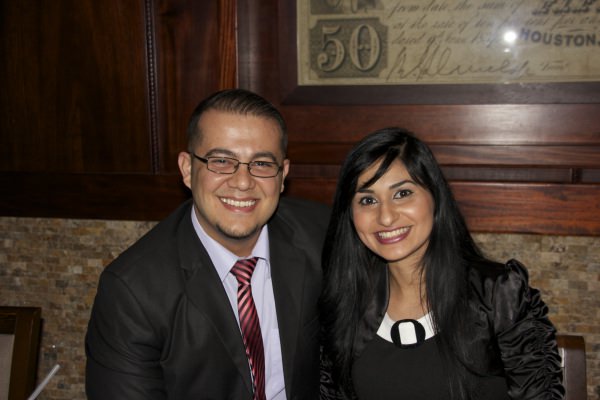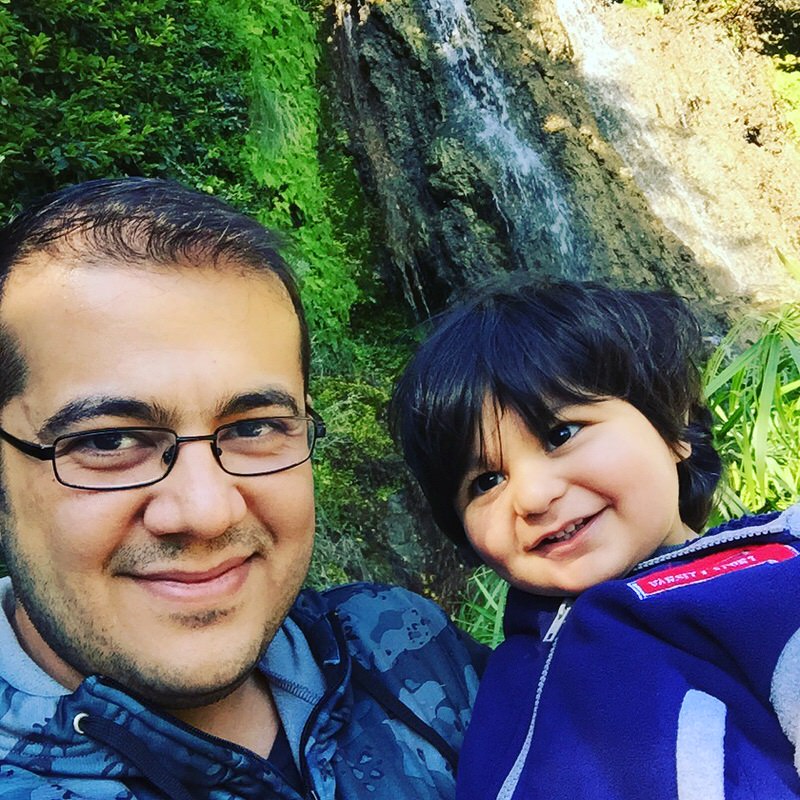Hussein Al-Jobori: Overcoming All Odds to Become a Doctor
 Hussein Al-Jobori was in his first year of medical school when the Iraq War started.
Hussein Al-Jobori was in his first year of medical school when the Iraq War started.
“My school stopped for three months, we didn’t know what our fate was going to be
professionally,” Al-Jobori said. “But that was when I realized my dream of going to the U.S. might be coming true.”
Al-Jobori explained that the war allowed him to interact with American soldiers who eventually helped him find a position as a medical translator.
“I see patient care and medicine in the United States as the crest of a large wave. While there are many advances around the world, I believe that the knowledge base and training in the United States are at the forefront of medicine and science.” He said.
As a medical translator in a U.S. combat hospital in Baghdad, he was able to improve his English skills and work on a variety of trauma cases in the emergency room.
“I got to translate, teach, and decrease the cultural gap between the U.S. armed forces and the Iraqi armed forces,” he said. Al-Jobori soon got transferred to a combat unit in Abu Ghraib where he met a patient had a deep impact on his life.
“There was a celebration close to Abu Ghraib area and a suicide bomber came in and blew himself up. We got to the scene and tried to help as many people as possible…there was a 17 year old girl that had burns over 75 percent of her body. Any patient like that in any local hospital would have faced a non-manageable medical difficulties, but in the U.S. hospital, she was being monitored minute-by-minute in a clean room with the best care available and she made it,” he said.
Two years later, he was able to apply for a visa to the United States and he is currently working as a postdoctoral fellow in clinical diabetes research at the University of Texas Health Science Center San Antonio.
“I wanted to do something to get a closer look to how practicing medicine is. To be a good doctor, you need to have multiple things. You need to have proper knowledge, skills, and to stay updated.”
Al-Jobori explained that he has already gained proper knowledge through his medical training and education. As an emergency room technician at Methodist Hospital, he has learned how to work with U.S. patients.
“In the U.S., the patient participation in the treatment plan is so crucial. In many other countries, the physician tells the person what to do but here the physician gives them the options and they choose with our guidance on what we think is best,” he said.
 As a fellow with Dr. Ralph Defronzo, he is working at the Texas Diabetes Institute on a study that is focused on a new era of medicine in which treatment of diabetes is focused on the kidney more than the blood or the liver.
As a fellow with Dr. Ralph Defronzo, he is working at the Texas Diabetes Institute on a study that is focused on a new era of medicine in which treatment of diabetes is focused on the kidney more than the blood or the liver.
“I have been lucky to be directly involved in cutting-edge research in diabetes and care for diabetic patients. My current work includes research on the recently approved SGLT2 inhibitors and oral insulin. I have learned to understand how important research is in order to make advances in patient care. With this understanding I am ready to move on to my ultimate goal of receiving clinical training here in the United States” he said.
Although he has passed his medical licensing exam (USMLE), he is waiting to do residency in internal medicine. His ultimate goal is to become an endocrinologist or a cardiologist after residency to help patients with some of the major leading causes of death like heart disease and hypertension. “I learned much in my home country, but I had aspirations to learn more about the state of the art of medicine in the United States” he said.
 This article was written by Charlotte Anthony, marketing specialist at the Graduate School of Biomedical Sciences at UT Health San Antonio. This article is part of the “Meet The Researcher” series which showcases researchers at the Graduate School of Biomedical Sciences at University of Texas Health Science Center San Antonio.
This article was written by Charlotte Anthony, marketing specialist at the Graduate School of Biomedical Sciences at UT Health San Antonio. This article is part of the “Meet The Researcher” series which showcases researchers at the Graduate School of Biomedical Sciences at University of Texas Health Science Center San Antonio.
